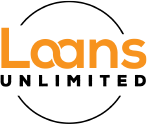Several loan options exist, and one factor that affects a consumer’s choice is the interest rate. The interest can either be fixed or variable. If you opt for a secured loan, it will mostly come with a fixed interest rate. However, many lenders also offer variable rate loans, particularly unsecured ones.
But what are interest rates and how do they work?
When you borrow money, you pay for that amount over a period of time, along with other costs, including the interest. The interest you will pay will depend on the amount you borrowed, the duration of the loan, and the current interest rate.
If you have dealt with some lenders before, you will notice that they have varying interest rates. You may have even observed that your rate is different from your friends’. That’s because the interest is determined through the following:
- The risk of the loan, particularly your risk as a borrower based on your credit history and the amount loaned to you
- Inflation in which the increase in price causes purchasing power loss for the principal
- Other conditions set by the lender
Your purpose for borrowing money will grant you an interest rate quote, which is known as the nominal rate. This rate can change from time to time. Because inflation influences lenders’ decisions to a large extent, financial organisations see a consumer’s risk as a crucial factor in offering the interest rate. This rate can be fixed or variable.
What are the differences between the two? We’ll explain to you the pros and cons of each interest rate, so you can understand them and pick the better choice for your situation.
Fixed-Rate Advantages and Disadvantages
In a fixed-rate loan, the interest does not change throughout the whole borrowing period. For most borrowers, this loan is the better option, especially for those who like predictability. Since the interest remains the same, the cost of the loan will not change until the time it is fully paid. The market may fluctuate, and the finance industry loses a little bit of its power, but you can count on your loan’s interest to stay constant.
Aside from the unchanging interest, are there any more benefits? Here they are:
- If you took care of your credit history by paying your bills and debts on time, this is your reward. Lenders will see your record, and they will give you low-interest offers. A fixed-rate loan product is mostly based on creditworthiness.
- Since fixed-rate loans are often secured, meaning they require collateral, you can borrow a larger amount.
- The life of the loan is often longer, ranging from one to 10 years, allowing you to make smaller payments that you can easily afford.
- If you follow a personal budget, which you should stick to for the next few years, fixed-rate loans can significantly benefit you.
- If the current market looks unstable, you may want to take advantage of a fixed rate offer. You can lock in a lower interest now before the rates shift.
- Fixed-rate loans have fewer features. However, most of the add-ons just complicate the loan and even increase the costs.
Now, we’re going to see if those benefits outweigh the drawbacks, which include:
- If the interest rates change and they decrease, you cannot gain from the situation.
- If you plan to switch to another loan, you could end up paying more. You may have to pay a break fee, which is charged against you for breaking your loan. This fee can be extremely high, especially if the interest rates have reduced since the time you took out your fixed-rate loan.
- Some lenders have early repayment fees, meaning you cannot pay the loan at an earlier time unless you’re prepared for the additional charges. It’s a huge disadvantage, particularly if your circumstances change.
The stability of this type of loan, along with the other benefits mentioned, may work for your current situation. However, it’s always best to learn about your other options, conditions, and requirements of the loan and lender.

Variable Rate Advantages and Disadvantages
As opposed to a fixed-rate loan, a loan with a variable rate changes its interest – hence the name. It’s not entirely a negative trait. While the rate can increase, it also has a tendency to decrease over time. And that is one reason why some consumers think a variable rate loan is more attractive than fixed-rate offers.
Let us take a look at the other benefits of a variable rate loan:
- If the market interest rates drop, you can fully take advantage of the new rate, since it will be applied on your loan.
- Extra features are added to most variable rate loans. The most relevant is the redraw facility, which is tied to the loan, allowing the borrower to get urgent cash.
- Most lenders allow borrowers to make early repayments without additional charges.
- Depending on the lender, the term can be anywhere from one to seven years. You have ample time to repay the loan, but it is still a shorter timeframe, which lowers the overall interest cost.
Meanwhile, here are the disadvantages:
- Since the rate changes based on the movement of the market, you could end up paying higher interest.
- Because of the interest rate decreasing or increasing, your repayments can vary from month to month. It’s a disadvantage for those who prefer predictability in their repayments.
- Most variable-rate loans are unsecured, meaning they usually have higher interest rates.
- The uncertainty of the interest rates in the future typically causes lenders to be more conservative in calculating your repayment capacity. It’s why they offer a higher rate, which ensures that you can continue paying for the loan in the future despite the possible increase.
Fixed-rate loans are stable, but it comes with a price. If you prefer flexibility over stability, a variable rate loan may be the better choice.

When Should You Use a Variable Rate Loan?
A variable rate loan can be a great option if you need money to:
- Purchase a car, especially an old or used vehicle
- Use a portion of the funds for other costs
- Pay for an immediate expense and plan to repay it ahead of schedule to reduce interest
- Supplement your cash flow
- Refinance your loan
- Renovate or do some home improvement
- Sell a property
You can keep track of the interest rate changes through the Reserve Bank of Australia’s website, specifically the cash rate page. The RBA implements the country’s monetary policy by looking at the cash market’s condition, trading activities, and demand, among others. Currently, the rates are attractive. Some lenders, however, follow their own rates, and they adjust them when required.
When is Fixed Rate Better than a Variable Rate Loan?
Fixed-rate loans, on the other hand, can help you with the following:
- Paying for a new car purchase
- Buying a car that you would keep until the maturity of the loan
- Getting a loan for those with a bad credit score or little to no credit history
- Looking for a loan when you’re on a limited or strict budget
- Paying for a holiday
In the end, the choice is up to you based on your situation and your priorities. Ask yourself whether you prefer flexibility or predictability. Then consider the pros and cons of each as listed above. No matter which you think is better, there is always an option for you.
Before taking out a loan, always read the fine print. More importantly, spend some time understanding your own financial circumstance. Look at the specifics of your available loan options, their features, and how they can benefit you. Finally, you should remember there are other factors to consider, as well.
The interest rate is just a small portion of your loan, particularly its total cost. You should look at the length of the term, other fees imposed by the lender, and the service costs, which will all contribute to the total expense of your loan.
Would you like to get started and have a brighter financial future? Talk to us here at Loans Unlimited, and we will help you select the right loan that suits your requirements.



